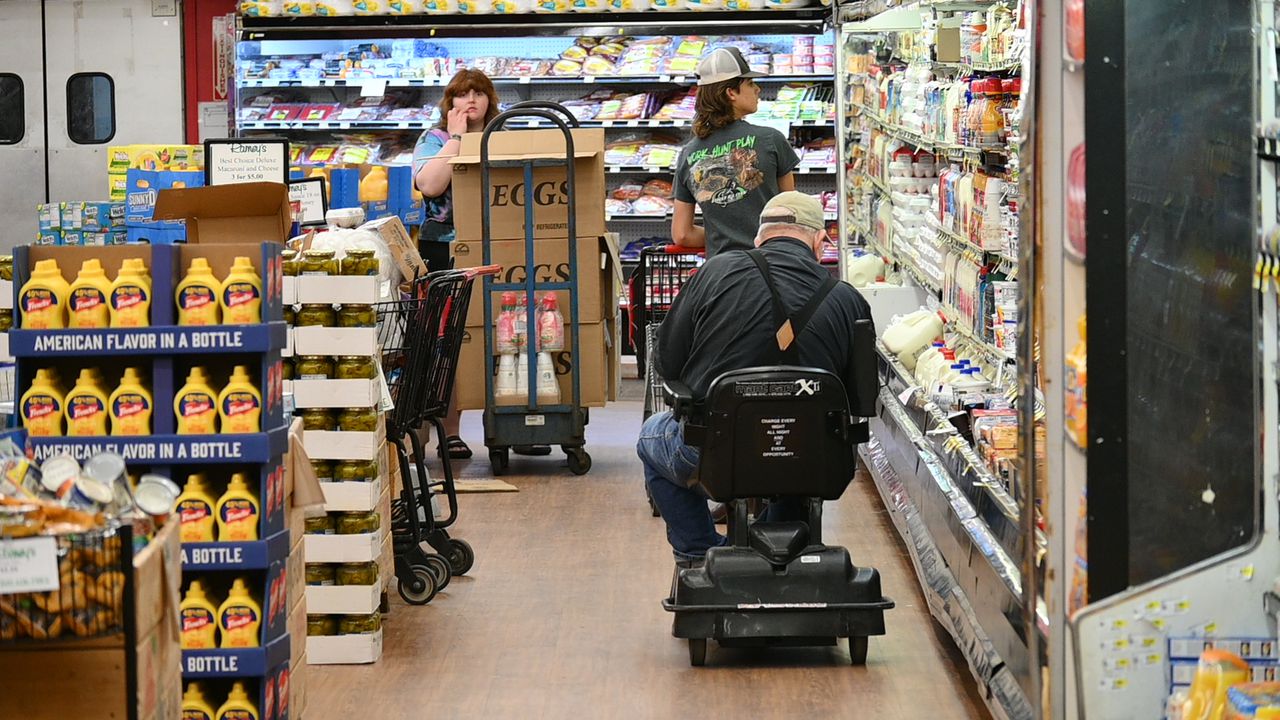âHistoricâ tax cut on groceries on cusp of approval in Alabama Legislature
Alabama is on the cusp of a “historic” tax cut after the Alabama Senate on Thursday approved a gradual 2 percentage point cut on the state portion of the sales tax assessed on groceries.
“It will be great for working Alabamians,” said state Senator Andrew Jones, R-Centre, and sponsor of HB479. “Folks are struggling to put food on the table. Grocery tax receipts have gone up. It’s because of inflation and prices on food has come back. This bill helps address that.”
The Senate version differs slightly from a previous version that was passed out of the Alabama House last week. The House will have to concur on the Senate’s vote, and that is expected to occur later Thursday afternoon.
Under a previous version of HB479, the state’s 4% sales tax on groceries would be cut in half by September 1, 2025. But under the revised version the Senate approved, the sales tax cut could be in effect by next fall as long as growth measures are met within the state’s Education Trust Fund (ETF).
The cut would only take effect if the projected growth revenues into the state’s education budget are at or above 3-1/2%. The House version required a growth rate of 2% before the sales tax cut would be allowed.
Jones said the 3-1/2% ETF growth represents the average annual growth rate for the education budget. The 2% cut from the sales tax equates to over $300 million annually.
“We want to make sure there is enough room to take the draw down (in the sales tax) and we want to make sure our schools are kept whole,” Jones said. “That’s why we raised that cap. We need to meet or exceed the regular (ETF) growth in Alabama.”
He added, “There are concerns among members that we are headed into periolous economic times, possibly recession. We want to make sure we have enough growth in the ETF to sustain the draw down of the grocery tax.”
Even with the tax cut, shoppers will still be assessed and overall sales tax on groceries. Cities and counties will continue to assess sales taxes on groceries.
Jones said local governments would have to raise their sales taxes before the legislation is signed into law by Gov. Kay Ivey, something which he does not anticipate occurring.
“I think it would be highly unpopular to take it off and put it back on,” Jones said.
He said a committee will be formed by November to analyze the cut’s impact, and see whether further reductions of the sales tax on groceries is warranted, including the remaining 2 percentage points the state assesses.
Sonny Brasfield, executive director of the Association of County Commissions of Alabama, said his agency is appreciative of the Legislature focusing solely on the state portion of the sales tax, and not the locals.
“We always urge the Legislature to only exempt the state portion of the tax,” Brasfield said. “We do not believe it is appropriate for the Legislature to mandate exemptions on county sales taxes. Local taxes are levied, in many cases, for specific local services and activities that are vital to the community. For that reason, the Association has always taken a very public and consistent stance against the Legislature passing exemptions from local sales taxes.”
He said the Legislature embraced that same philosophy with the grocery tax.
“We are grateful for the support we have received on this specific issue,” he said. “I also think the Legislative leadership has been clear that this initiative on grocery taxes has always been focused only on the state portion of the sales tax.”
The sales tax cut on groceries, Jones said, could represent one of the largest tax cuts in Alabama history affecting the most people. The legislation uses the same definition of food as the federal Supplemental Nutrition Assistance Program, or SNAP. SNAP foods include almost all foods found in the aisles of a grocery store: Fruits, vegetables, meat, poultry, fish, dairy, breads, cereals, snack foods, non-alcoholic beverages and the seeds and plants that produce food.
The legislation’s advancement represents a reversal of previous stalled attempts at advancing similar measures since, at least, the early 1990s.
Republicans, who are in a supermajority, claim that inflation and expensive groceries were the main reason why the cut advanced. Perhaps the biggest factor is that the state treasury is flushed with revenues. Alabama’s education budget has a massive $2.8 billion surplus, more than enough money to offset the lost revenue from a grocery tax cut.
“Folks have heard from their constituents,” Jones said. “It’s important to them. It’s been gaining momentum for decades, especially the past three to four years. People are saying they are paying more on groceries because of inflation. This is relief we can give that is equitable. The biggest benefit will be felt by working class Alabamians.”
The cut also drew interest from groups with different positions on policies, such as Alabama Arise – the non-profit agency that advocates on behalf of the poor – and the conservative think tank, Alabama Policy Institute.

